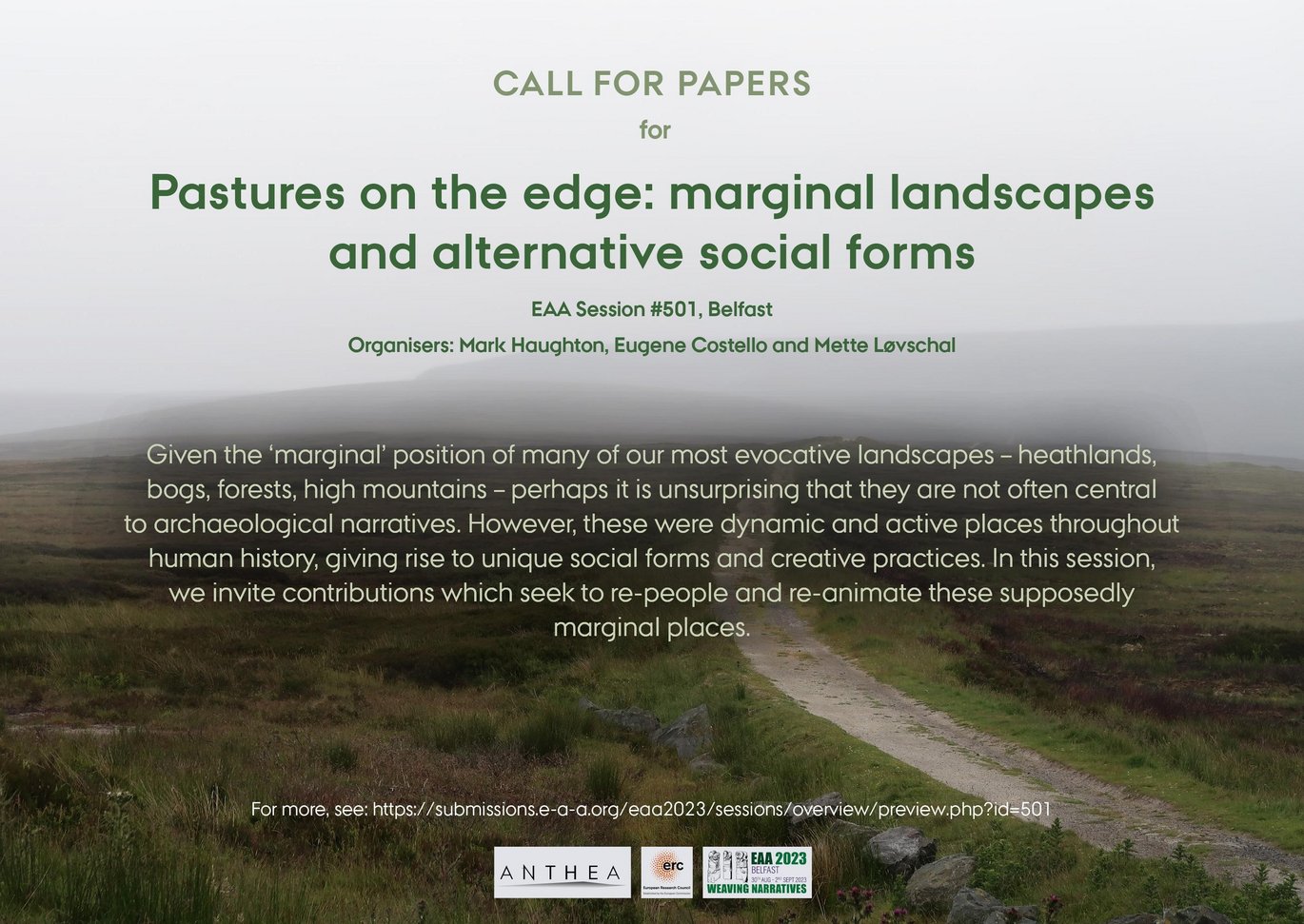ANTHEA goes to EAA Belfast 2023!
ANTHEA is well-represented at this year’s EAA in Belfast. Mette Løvschal and Mark Haughton will give two talks at the EAA Annual Meeting in Belfast and will be organizing a panel on September 2.

ANTHEA is well-represented at this year’s EAA in Belfast. Mette Løvschal and Mark Haughton will give two talks at the EAA Annual Meeting in Belfast and will be organizing a panel on September 2.
Follow our panel titled "Pastures on the edge: marginal landscapes and alternative social forms". At the Lanyon Building, room G074 on September 2.
- Theme: 5. (Extreme) Environments – Islands, Coasts, Margins, Centres
- Session format: Regular session
-
Content:
Many of our most evocative landscapes – heathlands, bogs, forests, high mountains – have been productive and lived environments throughout human history. Nevertheless, they sit in strange relation to much archaeological work, liable to come into focus as the site of exceptional finds, bodies frozen in pack ice or preserved in bog for instance. While these spectacular finds might grab our attention, they do not break the overriding sense that these were ‘marginal’ landscapes, visited for special purposes on unusual occasions. Given their marginality to modern, productivity-focused worlds, it is easy to forget the centrality such landscapes held to past communities and the particular forms of social organisation and tenure which they called into being, notably commons and shared grazing rights. Understanding land as held-in-common is, for example, a complex and actively heterarchical, even anarchic, way of managing resources. Yet, these landscapes are still underestimated as sources of insight on economic and social life, as if we assume their marginality today must reflect some unchanging essence of the landscape itself.
In this session, we want to re-people and re-animate these ‘marginal’ areas. How can we understand the effect of these landscapes on their inhabitants, and the inventive and productive relationships that people forge with one another in order to use and live in these places? We seek papers that explore social organisation in marginal and pastoral landscapes around Europe, in both the recent and distant past. We particularly welcome papers that discuss entanglements of people, plants, animals and topography, so as to get a fuller understanding of the factors influencing social organisation and landholding. How did ‘marginal’ landscapes afford opportunities for particular social forms, and what factors led to the disruption, reconfiguration or persistence of these regimes over time?Keywords:
pastoralism, transhumance, commons, heterarchy, marginality
Or follow our individual talks "Visualising ancestral commons: cyclical seasonal entanglements of humans and others" on August 31st at 10 AM, Session 337 VISUALISING MOBILITY: BEYOND ARROWS ON MAPS at Peter Froggatt Centre, room G007
and "Ancestral commons: exploring the centrality of ‘marginal’ heathlands to the Nordic Bronze Age world" on September 2 at 10 AM, Session 501 PASTURES ON THE EDGE: MARGINAL LANDSCAPES AND ALTERNATIVE SOCIAL FORMS at Lanyon Building, room G074
Check out the scientific programme here and the homepage of the event here
